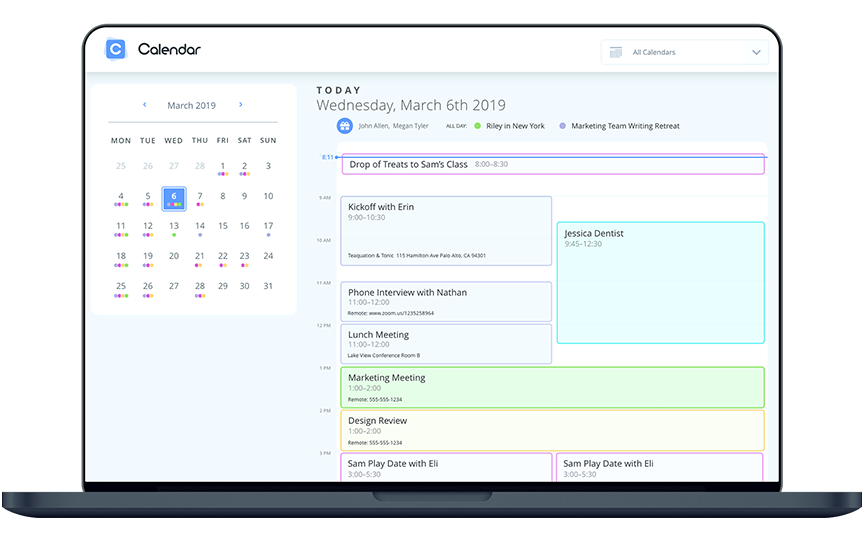After the acquisition of my previous company, starting a new company honestly sounded a bit intimidating. It was scary to consider starting from scratch in terms of not just building a product and a team, but also building a completely new brand reputation.
However, coming from the marketing and content world, I’ve seen many businesses use PR as a company-building asset. After seeing how many different ways PR could influence a company’s success, I felt like I had a superpower in my back pocket when launching Calendar.

If you don’t have a marketing or PR background, the idea of attracting media attention can be intriguing but overwhelming. That can lead company owners to discount the importance of PR. After all, if you’ve survived this long, how vital could it be? The problem isn’t with getting to where you are, however — the goal is to get somewhere you’ve never been. And you need other people to do that.
If you’re looking to harness that “superpower” feeling, here are the lessons I’ve learned about how PR can help fuel your business’s growth:
1. It’s The People Who Truly Build a Company
If I’ve learned one thing about building companies, it’s that having the right talent leads you to success. If barriers stand in your path that are beyond your control, great people will help you past them. As we’ve gained consistent PR hits leading up to our launch, we’ve seen an influx of people applying for jobs. We’ve also seen a tremendous number of sign-ups and interest for the Calendar product itself — people are interested in what other people are invested in.
Earlier in my career as a leader, my company had to fight to get people interested. We searched them out; it was all outbound at that point, and we needed others to vouch for us to turn that around. If you plan out consistent PR hits that aren’t just focused on branding and sales, but also on recruiting, they can bring tremendous value. Let me put it this way: I value a top employee over nearly any sale, so attracting high performers deserves to be a tactic in itself.
2. People Only Buy What They Know
As I mentioned, the PR efforts that have attracted great employees have also drawn users to us. That’s because PR can play up a fundamental truth about sales: People only buy what they know. The explosion of review sites and advice freely given on social media platforms and Amazon underscores the fact that people want to hear about others’ experiences before they act. Third-party validation matters more than you might think. Unknown brands can seem like too big a risk, and most people will opt out.
PR coverage can change that. Traditional media kits provide writers and marketers with standard information about your product or service. But that doesn’t really make people feel like they “know” you. People want to know about your brand’s approach, values, and team. Without knowing what makes you different, your company will fade into the background with so many others. Highlighting your company’s origin story, customer goals, and quirks can humanize it.
3. If Others Don’t Care, Neither Will Investors
Not every company comes out of the gate needing investors. Some plan to bootstrap their way to a buyout. But you never know when you’ll need external resources, so it’s good to keep your options open. Investors, of course, are looking at the potential of the product or service, as well as the promise you, as the leader, show. One other thing they look for, however, is a company that’s garnered coverage in reputable outlets. Investors don’t just want to make strong bets — they want to add companies that will enhance their portfolio.
When my partner and I spoke with investors, what set us apart was the amount of coverage we’d organically built up. With lots of publications discussing what we were building, it was hard for people to ignore our momentum. We got to bypass generic conversations about what the app did — they already knew — and go straight into conversations about our plans to disrupt the industry. I probably don’t need to tell you which topic is more interesting to investors.
Conclusion
If you’re building a new company’s reputation from scratch, you can’t underestimate the value of PR. A lot of leaders discount PR as “old-school marketing,” but it does something you can’t: Give an outsider’s view of what your company is building. External validation may not mean much to you personally, but it can make or break your growing company’s trajectory.
About John Hall
John Hall is the co-founder and president of Calendar, a leading calendar app that's designed to change how we manage and invest our time. He authored the best-selling book and is a must-see keynote speaker who you can book Top of Mind here.
![]()
Most Recent Posts
Cision Blogs Topics
-
Communications Best Practices
Get the latest updates on PR, communications and marketing best practices.
-
Cision Product News
Keep up with everything Cision. Check here for the most current product news.
-
Executive Insights
Thought leadership and communications strategy for the C-suite written by the C-suite.
About Cision Contributor
This post was written by a guest Cision contributor.
